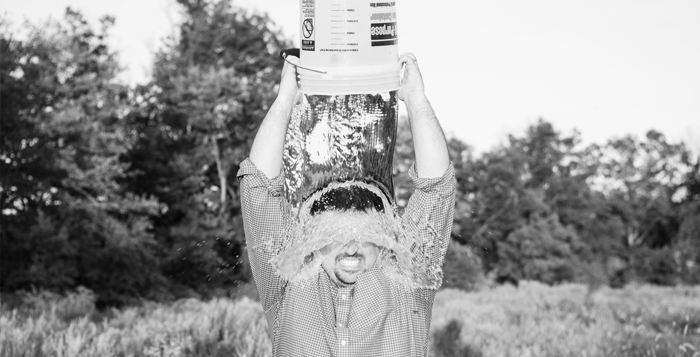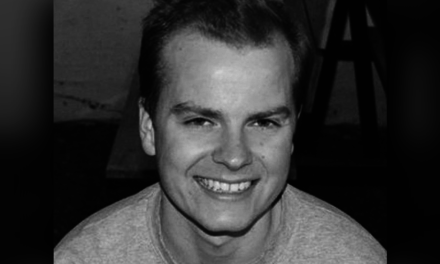
There has been much frigid water spilled over the increasingly popular Amyotrophic Lateral Sclerosis (ALS) Ice bucket challenge, but little ink.
I should start by saying that I think the premise is fantastic: get a bunch of people to dump freezing water on their heads because it makes everyone understand ALS in a deeper and more meaningful way.
Sarcasm aside, I do believe the challenge has accomplished much, despite widespread misunderstandings. I also really would not have expected something like this to go viral, but it’s great that it has. It would be neat to see the trend continue for other diseases and disorders.
Now my caveats.
For the conservatives out there (oh, they exist at Emory), you might be interested to know that money donated to ALS research goes in part to fund embryonic stem cell research, which involve fertilizing human embryos in a test tube and then aborting the budding life therein. This prompted some advisories from the Catholic Church and has received criticism from others who believe that life begins at conception.
You might also like to know that the money the challengers have raised (closing on 80 million as I write this) is a drop in the bucket (pun intended) of the roughly 6 billion dollars that the government has cut from National Institutes of Health research funding recently.
A result of the Budget Control Act of 2011, these cuts have hit ALS research hard. According to NBC news, the $59 million dollars spent on ALS research in 2010 has fallen by a third. NBC quotes Jonathan Serody of the University of North Carolina as saying, “Private donations don’t come close to making up for [NIH budget cuts] … If a million people would donate $100 a year for 30 to 40 years, you might get a breakthrough for ALS.”
So why do we or should we still do it? Does the biting chill help us to empathize with the terrible suffering of those afflicted with ALS? Is the opportunity to post videos of ourselves in bathing suits that irresistible? Or is it just because everyone else is doing it, because we’ll get branded as a heartless monster if we refuse the challenge?
I think none of these quite puts a finger on the issue. We do the ice bucket challenge because it makes us feel good about ourselves, helping a good cause by giving our own hard-earned cash. But no one wants to hear that the ice bucket challenge is ineffective at raising funds for ALS research. No one wants to hear that they need to actually give repeatedly, to the point where it no longer remains a glamorous affair, fading from social media and the smartphone camera. It’s selfish. Most of us just want to feel good about ourselves.
Yet I still see a glimmer of hope, a kernel of goodness in it all. At the heart of the matter, I see the challenge as a petition not for vast sums of research money, but for simple recognition of the horror and tragedy that is ALS.
For those of you not familiar with the neurodegenerative disease popularly referred to as Lou Gehrig’s (also Motor Neuron Disease (MND) and Charcot Disease), it’s grisly, really grisly.
A rough chronology: first there’s difficulty with dexterous tasks, like buttoning your shirt, and you might have some trouble walking and staying coordinated. This progresses until you start to have trouble moving any muscle in your body. Eventually, you end up on a respirator, and, on average three to five years from onset, you die of respiratory failure or pneumonia.
I lay these out because I’m sure that as many people have dumped that bucket of freezing water on their heads, few have actually taken the time to really research the disorder. And that’s the crux of my argument here, that knowledge and awareness is the real purpose of the ice bucket challenge. Think about the inordinate amount of pain an ALS victim experiences. Imagine going through it, and no one understanding – or worse, everyone misunderstanding – what was happening to you.
In my own challenges with mental health, my greatest fear remains suffering alone. Nothing makes life more worth living – or more beautiful – than a friend who willingly comes alongside you, keeps you in his or her sights and suffers of their own volition in solidarity with you.
The need is real, and the need is deeply human – to be perceived, recognized, loved and respected.
I believe this is the ALS community’s greatest petition, even more than funds for research or the world knowing the name of their affliction. For those of you who accept the ALS ice bucket challenge, then, I would issue the additional challenge (though I contend it is one and the same challenge) of doing some research on the disease, attaching a face (other than Stephen Hawking’s) to it and merging its reality into yours.
To summarize, even if we are too attached to our money to raise serious funds for a disease, we can at least give ALS the attention it deserves – and hopefully other world crises, while we’re at it.
-By Jonathan Warkentine
The Emory Wheel was founded in 1919 and is currently the only independent, student-run newspaper of Emory University. The Wheel publishes weekly on Wednesdays during the academic year, except during University holidays and scheduled publication intermissions.
The Wheel is financially and editorially independent from the University. All of its content is generated by the Wheel’s more than 100 student staff members and contributing writers, and its printing costs are covered by profits from self-generated advertising sales.






Thank you for reminding me why I do not read the Emory Wheel.
Insightful and thought-provoking. The Ice Bucket Challenge is a great way of drawing attention to ALS.